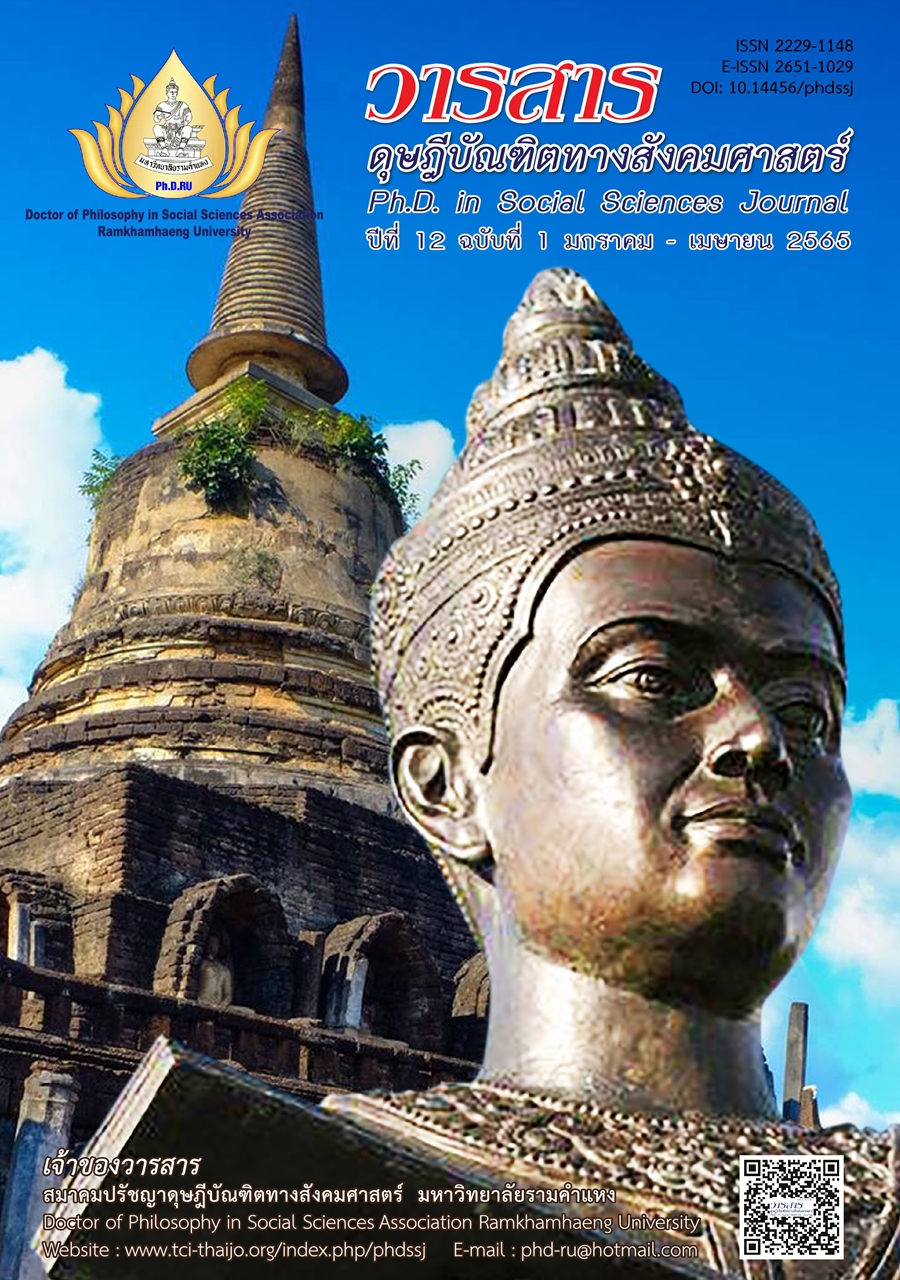The Exercise of Judicial Discretion to Admit Wrongfully Obtained Evidence: A Study of Wrongfully Obtained Evidence Derived by Acting of State Officials
Main Article Content
Abstract
The purposes of this research article are to study (1) The meaning and the exercise of judicial discretion when admitting wrongfully obtained evidence derived by state officials (2) The punishment on the state officials who wrongfully obtained such evidence, and (3) The enforcement of the law and the appropriateness of the principle to exclude evidence rightfully occurred, but wrongfully obtained as provided for under the Criminal Procedural Code, Section 226/1, paragraph two.
The results of the research found that the exercise of judicial discretion required by the Criminal Procedural Code allows the court considerable discretion to admit any evidence which has arisen rightfully but has been derived wrongfully by interpreting the law to decide the case as appropriate. The discretion could be broadly exercised and applied on a case by case basis. In case a state official, by wrongful act, obtained the evidence and the evidence is valuable for proof, important and reliable, and in order the listen to the facts of the case, the court should admit such evidence to be considered in the principle case, for fairness and speedy process to the damaged person in the principle case. Yet, the innocence of the suspect could also be proven, resulting in the fairness for both damaged person and the suspect in the main case. Should a punishment be imposed on the official to suppress the wrongful act from obtaining the evidence, a separate punishment should be considered to the official wrongfully perform the duty under the criminal law, the Tortious Liability of Officials Act B.E. 2539 (1996), or disciplinary action, as the case may be.
Article Details

This work is licensed under a Creative Commons Attribution-NonCommercial-NoDerivatives 4.0 International License.
Academic articles, research articles, and book reviews in the Ph.D. in Social Sciences Journal are author’s opinions, and not the publisher’s, and is not the responsibility of the Ph.D. in Social Sciences Journal Philosophy Association, Ramkhamhaeng University. (In the case that research is done on human, the researcher has to be trained in Ethics for Doing Research on Human Training and has to produce the evidence of the training).
References
Charoenboon, K. (2006). Guide of disciplinary investigation, National Police Act B. C. 2547. 21 Century. [In Thai]
Jintasatean, C. (2010). The exception of exclusionary rule on improperly obtained evidence under section 226/1 of Thai criminal procedure code. Master’s Thesis of Law, Thammasat University. [In Thai]
Na Nakorn, K. (2006). Criminal procedure law (7th ed.). Winyuchon. [In Thai]
Phakdeethanakul, C. (2009). Description of evidence law (4th ed.). Jirarat Printing. [In Thai]
Phanruet, T. (2008). Hearing of evidence in a criminal case. Winyuchon. [In Thai]
Saendee, P. (2004). Serious discipline offense of police offi cers. Institute for Justice Research and Development Offi ce of Justice Affairs. [In Thai]
Sawaengsak, C. (2003). Description of offi cers liability for abuse (4th ed.). Winyuchon. [In Thai]
Singhanart, T. (2009). Description of evidence in civil laws and criminal laws. Krung Siam. [In Thai]
Sorsrisakorn, M. (1996). Hearing of evidences from wrongfully obtained: A case study of witness evidence and documentary evidence. Master’s Thesis of Laws, Thammasart University. [In Thai]
Vachanasawas, K. (1977). Principles of objections to hearing material evidence, documentary evidence acquired by illegally searching and confi scating in U.S.A. Law Journal, 9(3), 120-136. [In Thai]
Vachanasawas, K. (2008). Juridical explanations on the criminal procedure on prosecution in the pre-consideration process (6th ed.). Jirarat Printing. [In Thai]


